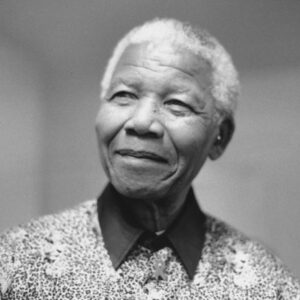Rolihlahla (Nelson) Mandela was born on July 18th, 1918, in a small village called Mvevo, South Africa. On his first day of school, his teacher has said his first name will be English. Hence, she called him Nelson. The name stuck with him. Then, The Union of South Africa was the official name of the country. It was a self-governed part of the British Empire.
Racism played a crucial role in Mandela’s youth. In the early 1940s, he studied law at the University of Witwatersrand. He was the only black student in the class. So, in 1944, he joined the African National Congress. The ANC was a black South Africans group fighting for equal rights.
But, things turned even worse after the 1948 elections. That resulted in racial segregation, the Apartheid. Hence, Mandela started a peaceful opposition campaign – inspired by Gandhi. Further, the state followed Mandela due to his attraction to communism.
In 1960 the ANC was banned. A year later, the illegal ANC formed a military group called Umkhonto we Sizwe (Spear of the Nation). Mandela abandoned the peaceful campaign. The tension in South Africa grew.

✟ December 5, 2013, Johannesburg, South Africa
Nelson Mandela and his journey to the presidency
In October 1962, the apartheid regime sentenced Mandela to five years in prison for treason. However, two years later, his sentence was extended for life. In prison, Mandela experienced more abuse. So, people all around the world demanded freedom for Mandela.
The new president Frederik de Klerk released Nelson Mandela from prison in 1990. He spent over 27 years in prison. Once again, he started a campaign in support of equal rights. Further, he once again became the leader of ANC. And he transformed the group into a social democratic party. Along with de Klerk, he received the Nobel peace prize.
Finally, South Africa held its first equal elections in 1994. Nelson Mandela won and became the country’s first black president. The signing of a democratic constitution banning racial abuse was among his most notable achievement. He continued his work for human rights between 1999, when his mandate ended, until December 5th, 2013, when he died.
“It always seems impossible, until it is done.”
Nelson Mandela
